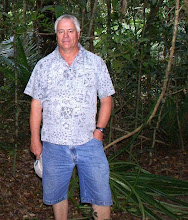 Anyone who has filled up lately, knows that gas prices are going through the roof, and energy-related stocks seem to have replaced dot.com stocks as the "hottest" investment around. My suggestion, fill up tomorrow, and take your gas cans with you, because it is only going to get worse by this time next week. In the last two weeks, nationwide gas prices have shot up 20 cents. Even in my Nissan pickup that only holds about 12 gallons. Tomorrow, I'll be paying $2.40 more than I was only two weeks ago to fill up. It's time to get out the bicycle, put some air in the tires, and get a little exercize to boot. Oil set another all time record today, closing at nearly $135 per barrel. While all of this is happening, world sugar prices are sliding ever downward. Go figure. Other agricultural commodities, such as corn, soybeans, and wheat are riding the biofuels wave. Why not sugar? In Brazil, it is estimated that 58% of the sugarcane crop will be directed toward ethanol production this year, up from 50% just two years ago.
Anyone who has filled up lately, knows that gas prices are going through the roof, and energy-related stocks seem to have replaced dot.com stocks as the "hottest" investment around. My suggestion, fill up tomorrow, and take your gas cans with you, because it is only going to get worse by this time next week. In the last two weeks, nationwide gas prices have shot up 20 cents. Even in my Nissan pickup that only holds about 12 gallons. Tomorrow, I'll be paying $2.40 more than I was only two weeks ago to fill up. It's time to get out the bicycle, put some air in the tires, and get a little exercize to boot. Oil set another all time record today, closing at nearly $135 per barrel. While all of this is happening, world sugar prices are sliding ever downward. Go figure. Other agricultural commodities, such as corn, soybeans, and wheat are riding the biofuels wave. Why not sugar? In Brazil, it is estimated that 58% of the sugarcane crop will be directed toward ethanol production this year, up from 50% just two years ago.What caught my attention today was a story in the International Herald Tribune about an ethanol "still" that can be purchased for under $10,000, that looks like good ol' fill-er-up gas tank, and runs on sugar. This led me to the E-Fuel 100 MicroFueler website. Once you have the still, all you need to do is add a sugar solution and yeast. The still is "smart" enough to be able to do all the rest on its own.
At certain times of the year, our research station is collecting a large number of cane juice samples, and either giving away or throwing away a fairly large amount of excess cane juice, following sampling. Perhaps it's time for us to start thinking about taking advantage of this type of technology. Great PR and a way to save money in the long run.
One last thing. If you thought the cartoon at the top of this post was a little on the silly side, check this story out.

1 comment:
I was just thinking about Brazil the other day and how successful they have been with sugar.
Too bad we didn't listen to Carter in the '70's when Brazil was working on this issue.
Post a Comment